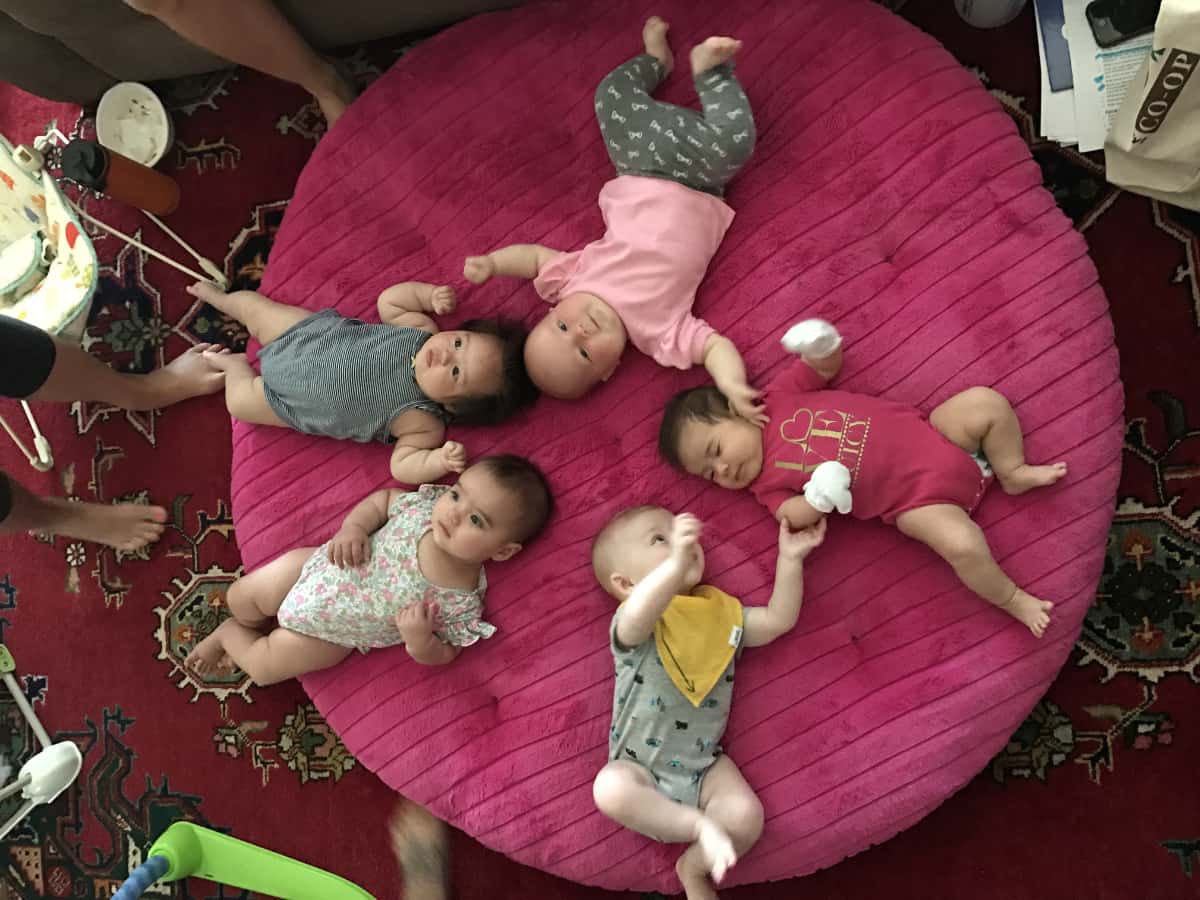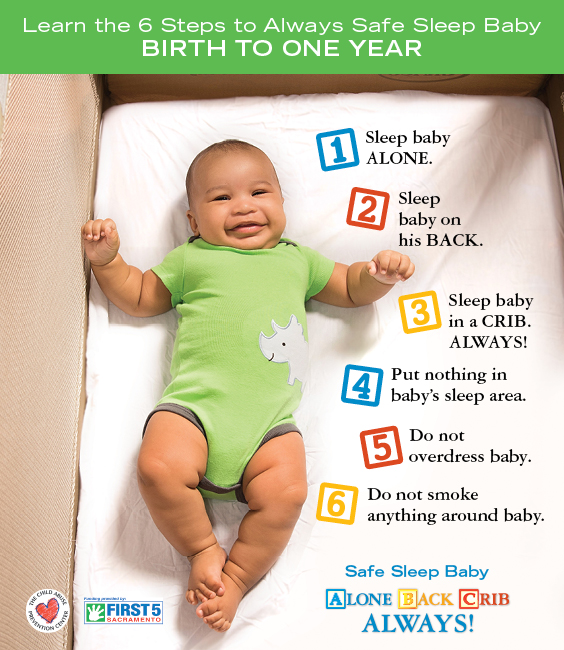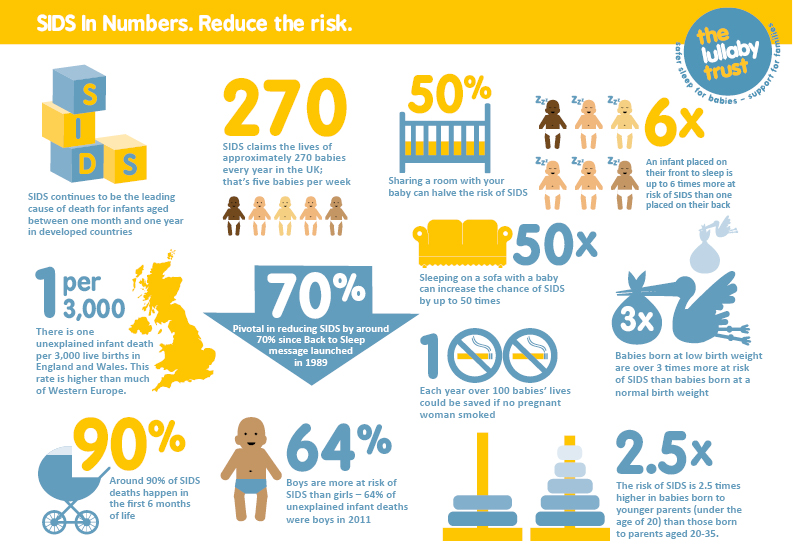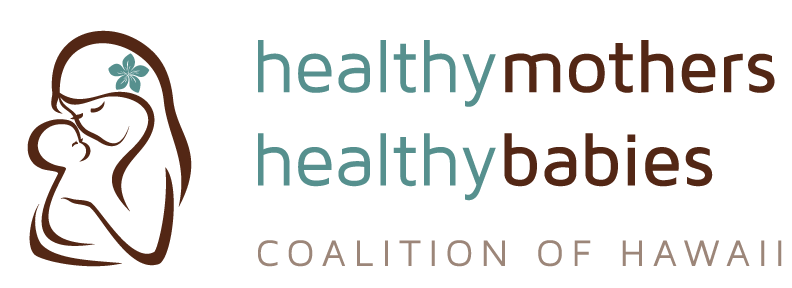Healthy Mothers Healthy Babies Coalition of Hawaii provides safe sleep education for pregnant women and their families to help reduce the incidence of Sudden Unexpected Death Syndrome (SUID) and Sudden Infant Death Syndrome (SIDS).
Gathering baby clothes and diapers, selecting a car seat—there’s so much to do to before bringing a newborn home! But did you know that learning about safe sleep practices and creating a safe sleeping environment for your baby are important for keeping your baby safe and healthy?
Why Safe Sleep is Important
Each year in the United States, more than 3,500 infants die suddenly of no immediate, obvious cause. Sudden Unexpected Infant Death, or SUID, is defined by the CDC as a broader term that encompasses all sudden infant deaths, and includes SIDS, accidental deaths, sudden natural deaths, and homicides. More narrowly, the CDC defines Sudden Infant Death Syndrome, or SIDS, as “the sudden death of an infant less than 1 year of age that cannot be explained after a thorough investigation is conducted.”
SUID occurs among infants less than 1 year old, and at least half of these deaths, about 1,500, are due to SIDS. In fact, SIDS is the leading cause of death in the United States for babies between 1 month and 1 year old. Accidental suffocation and strangulation are often the causes, comprising 25% of SUID cases annually.

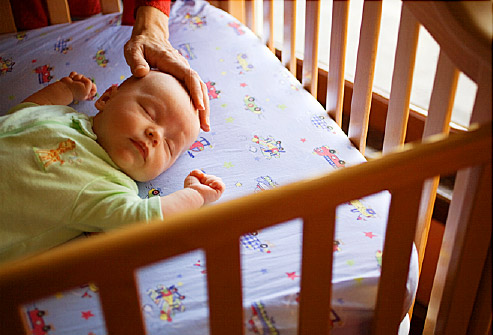
Parents, you can reduce the risk of infant death from SIDS as well as death from known sleep-related causes by taking certain precautions and creating a safe sleeping environment for your infant. It is also important to ensure that your child care provider does the same. Always take the following precautions when putting your baby to sleep.
- Always place infants to sleep on their backs.
- Place infants to sleep in a baby bed with a firm mattress.
- There should be nothing in but the baby—no blankets, no pillows, no bumper pads, no positioning devices, and no toys.
- Keep your baby’s crib in the parents’ room until your baby is at least 6 month’s old.
- Don’t place your baby to sleep in an adult bed, couch, or futon.
- Breastfeed babies whenever possible. Breast milk decreases the occurrence of respiratory and gastrointestinal infection. Studies show that exclusively breastfed babies have up to a 50% reduced risk of SIDS.
- Don’t overheat the infant while she sleeps. Just use enough clothes to keep the baby warm without a blanket. Keep the room at a temperature that is comfortable for you.
- Offer your baby a pacifier after breastfeeding has been established. Some studies have shown a lower rate of SIDS among babies who use pacifiers.
- Avoid tobacco smoke. Don’t have your infant in the same house or car with someone who is smoking.
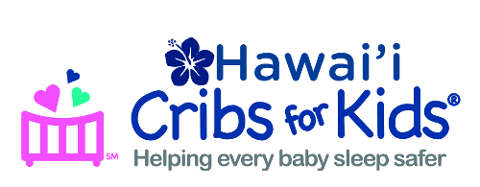
Did you know that sleep-related deaths are the leading cause of accidental infant mortality?
HMHB offers “Hawaii Cribs for Kids”, a safe sleep education course for low-income, high-risk pregnant women and their families. This program provides education on the risk factors, how to create a safe sleep environment, and tracks the baby’s health throughout its first year of life.
Health centers and community partners refer eligible parents to HMHB and each participating family receives a free GRACO Pack n’ Play travel crib so their child has a safe place to sleep.
This program is entirely referral-based for qualified women by their social worker or case manager and self-referrals are not accepted.

Learn More
